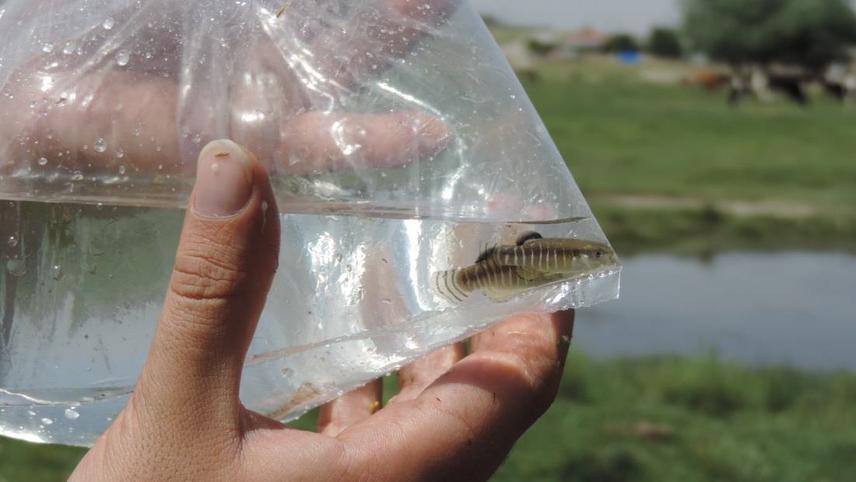Baran Yoğurtçuoğlu
Other projects
7 May 2013
Conservation of a Critically Endangered Endemic Killifish (Aphanius transgrediens) Living in a Sensitive and Invaded Habitat in Turkey
This project is aimed at improving and reinforcing Aphanius transgrediens populations which are on the edge of extinction

Acıgöl Toothcarp (Aphanius transgrediens) is one of the most threatened vertebrate species in the world. The only natural distribution area of this tiny endangered fish is the ground water dependent wetland which consists of about 20 small freshwater springs flows into the Lake Acıgöl. According to our previous Rufford Project, almost all of these springs were determined to be invaded by the Eastern Mosquitofish (Gambusia holbrooki), one of the worst invasive animal species in the world. Within this project, we will establish founder populations based on population genetic data and undertake re-introduction and re-inforcement studies in the native range of the species. Sheltered man-made ponds will serve as stock development cores for further re-introductions. Once the founder population begin to reproduce and increase its size, we will try to re-introduce them considering the carrying capacity of natural springs. In addition, we will eradicate Gambusia populations regularly from some of the springs through draining, water pumping or rotenone and will make barriers to prevent recolonization from the lake or other springs.
Raising public awareness and establishing an active conservation team will be supplementary objectives of the project. After public opinion survey conducted throughout the first stage, we came to a conclusion that the interest of the local community was encouraging. As we mentioned in our first project, long-term success in this projects may motivate us further to widen the project towards close lakes in the area and will promote other conservationists to commence similar attempts for similar invasion cases.